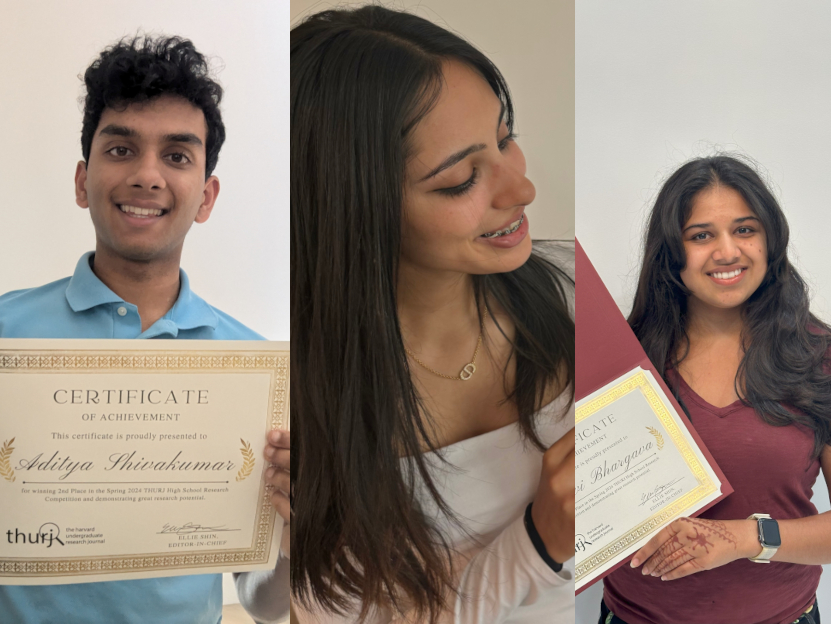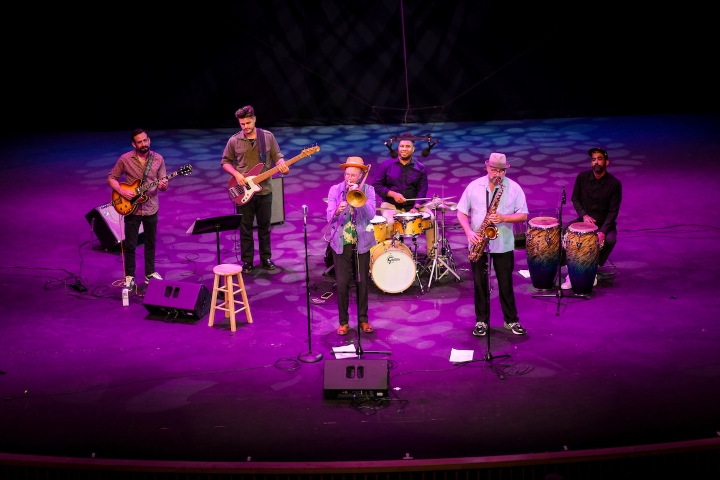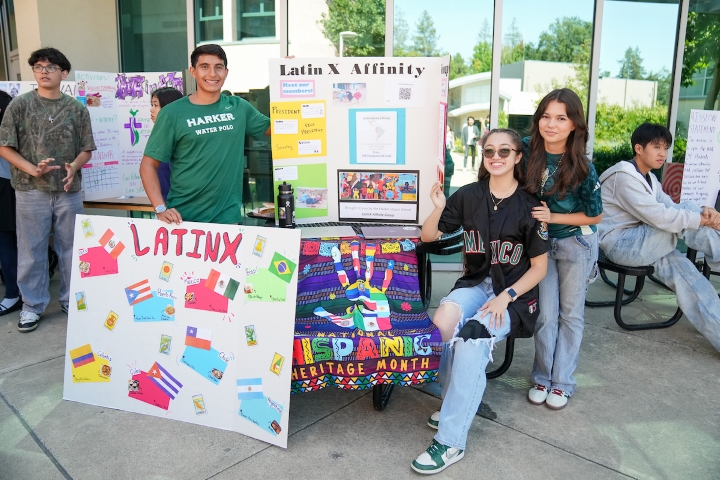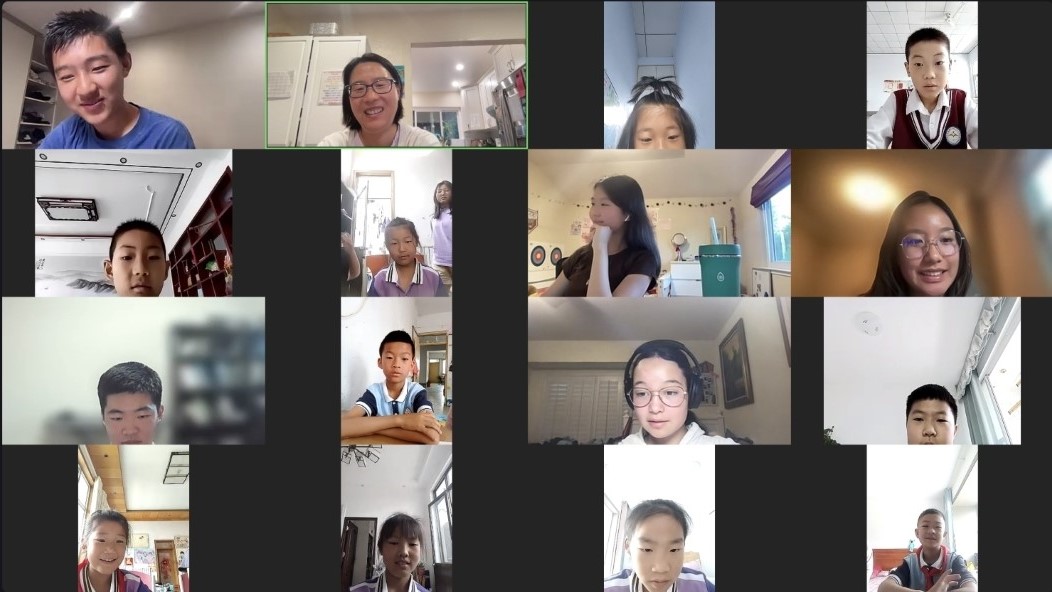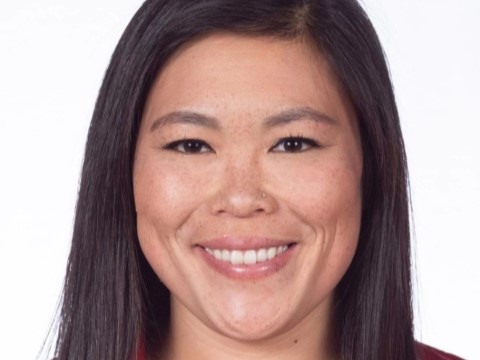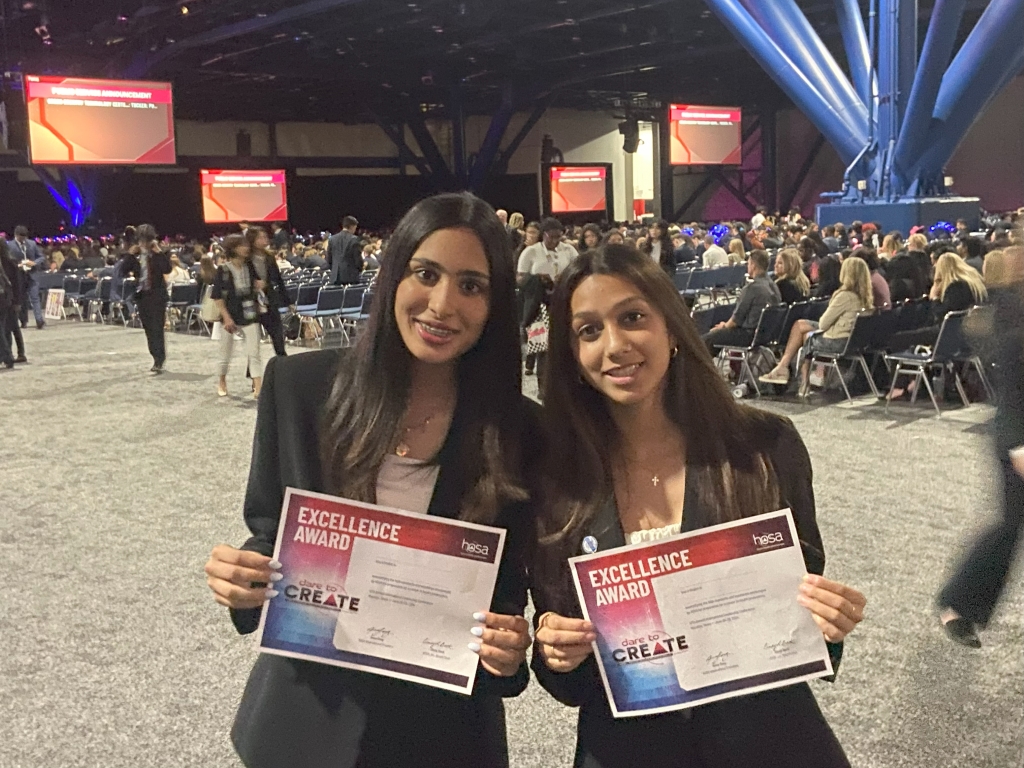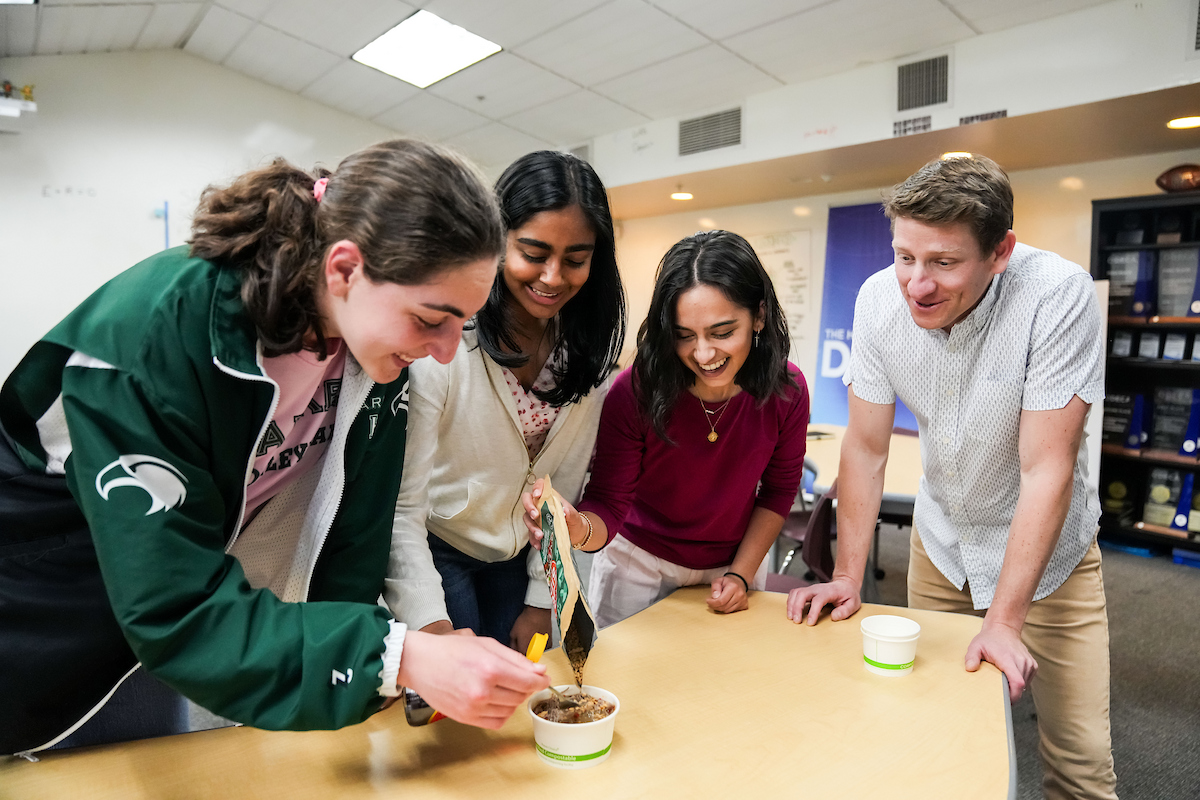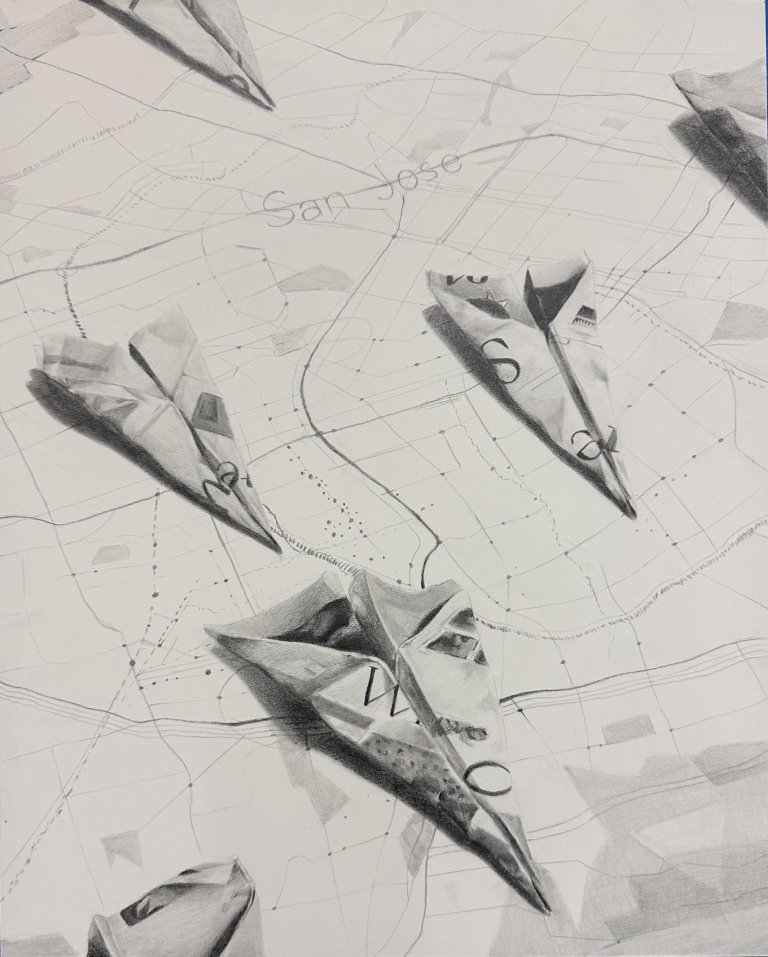Upper school students took three out of five top spots in the The Harvard Undergraduate Research Journal’s (THURJ) Research Competition.
express
The Tropicales bring New Orleans flair to Caribbean sounds
New Orleans-based group The Tropicales opened the 2024-25 season of the Harker Concert Series on Friday with a sound inspired by the music of the Caribbean and forged in the Crescent City.
More than 90 groups represented at Student Organization Fair
ast week, the upper school held its annual Student Organization Fair, during which more than 90 student clubs and organizations set up tables.
Sophomore tennis player named All-American
Earlier this year, sophomore Tanishk Konduri was named a 2024 Boys All-American by the National High School Tennis All-American Foundation.
Harker students teach English to children in rural China
Harker’s chapter of the National Chinese Honor Society organized a series of online classes over the summer to teach English to children in rural China.
Alum Megan Abarca ’08 working with USA artistic swimming at Summer Olympic Games
Megan Azebu Abarca ’08 worked as an assistant coach for the United States artistic swimming team at the 2024 Summer Olympic Games.
Rising juniors take sixth place at international health care conference
Rising seniors Angelina Antony and Disha Gupta took sixth place among 175 teams in Creative Problem Solving at the HOSA International Leadership Conference.
Shlurp Ramen wins $5K in funding at National Pitch Competition
Shlurp Ramen was named one of the winners of the INCubatoredu National Pitch Competition.
[UPDATED] 24 Harker graduates named National Merit winners
15 seniors named $2,500 scholarship winners.
Rising senior wins national medal in Scholastic Art & Writing Contest; student artists win more than 70 awards
Rising senior Sophia Liu received a national gold medal in the 2024 Scholastic Art & Writing Awards for her piece, titled “Paper Airplanes.”
